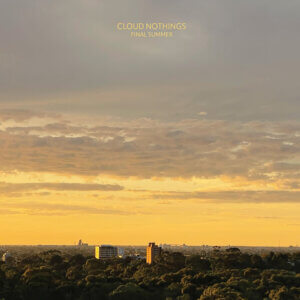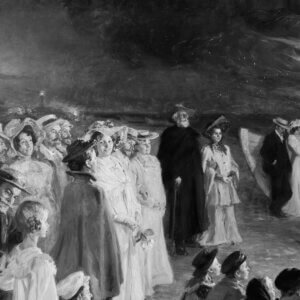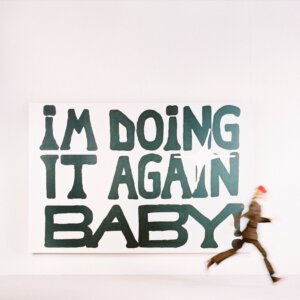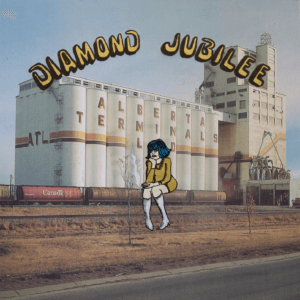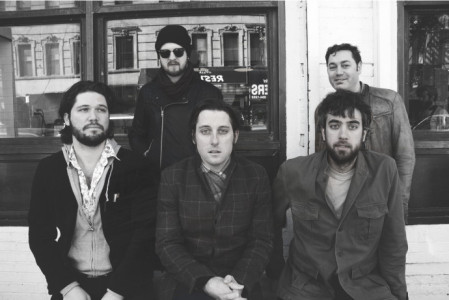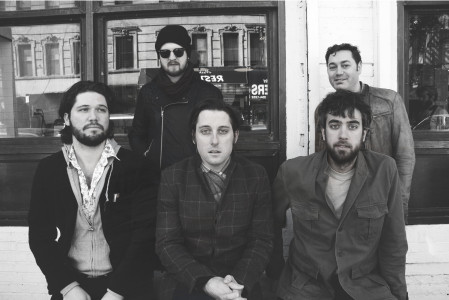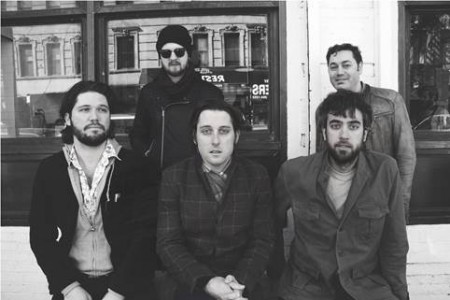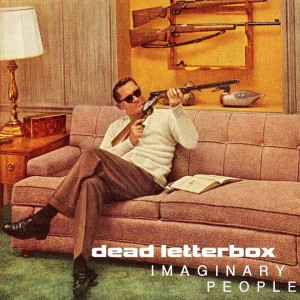Imaginary People’s Dylan Von Wagner
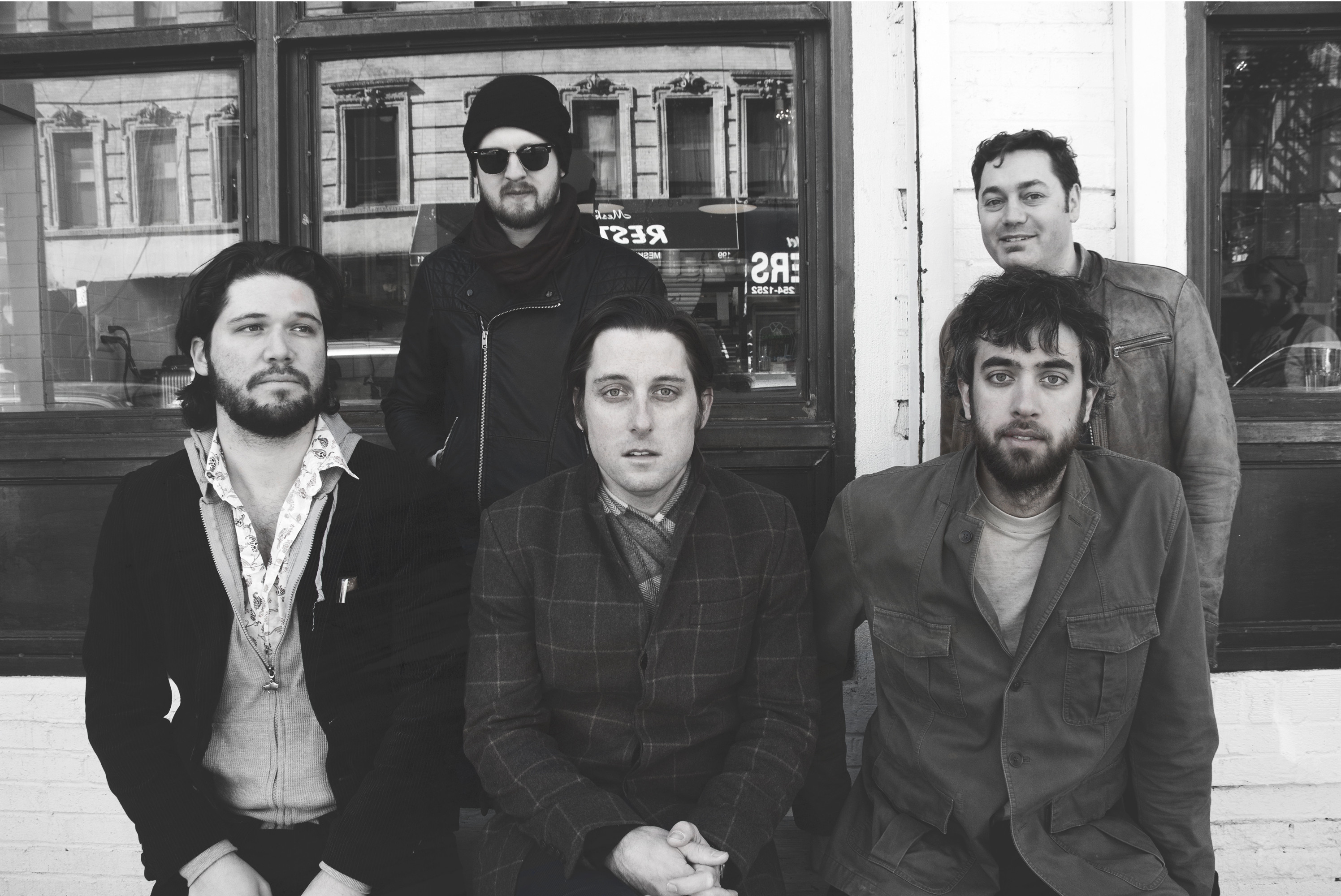
Imaginary People is a band out of New York City, pushing to erupt in a big way. The five piece, comprised of Justin Repasky, Dylan Von Wagner, Mark Roth, Bryan Percivall, and Kolby Wade, played a tight set at Rough Trade in Brooklyn last week. As fans danced in front of the stage, one of them called out “I love you” to the lead singer, Dylan Von Wagner. And there’s no question that his distinctive vocal style and attack adds another layer to the music that the band dubbed “Dance Americana” on their first EP. Try to imagine sharp guitar, new wave synth, and solid bass lines that keep it all going. Add a little Elvis on psychedelics tripping over Bryan Ferry in a dark corridor, before they all go jam on a beach, with the CIA and the Beach Boys keeping an eye on what’s happening. Imaginary People just released their first full length album, Dead Letterbox, and out of the box, the single and video, “Simple Life” got a showing on NPR. Northern Transmissions caught up with Dylan Von Wagner. Alice Severin asked him about the album and the future.
NT: How are you doing? Where are you?
DW: Good, thanks. I’m in the Lower East Side – New York. We’re here about ten years.
NT: So you’ve watched a lot of changes happening down there.
DW: Yes and no. I think the East Village has sort of stayed the same over time. Besides the big
buildings going up, I’m pretty content that it hasn’t lost its luster.
NT: The new album has just come out – Dead Letterbox. How has it been for you?
DW: It’s good. I really want to get out on the road and tour it. But that’s the next step is to figure out how to do that.
NT: You and the band just played at Rough Trade in Brooklyn on Wednesday. It was a really well received show.
DW: Yeah, that was fun.
NT: You’ve got this very distinct style and the album seems to come into its own live. And the band comes across as very accomplished musicians. How did you all meet up and start working together?
DW: Around 2013 we got together. We had a different drummer then and we put out an EP. And then we had the present incarnation came together about a year ago, and then we started to write our debut album. And it’s just been a friends of friends kind of thing.
NT: You do most of the writing, then the other band members have their input. How has it been working together as a group?
DW: Usually I bring in a sketch of a song, and if they’re responding to it, we kind of sit there for a month on end trying to arrange it. It’s just about me bringing in the melody or the chord change, and then we deconstruct it and build it back up.
NT: Has the level of musicality made it possible to be more daring, and try more than you might have done before?
DW: Yeah, the musicianship is pretty top notch. We also use this guy on overdubs who’s also an amazing musician, this guy Grant. We really come from varying backgrounds. I picked up the guitar very late, in my mid-twenties, and kind of just sucked for a while. And I didn’t really play live until I was like 29 or 30, so I don’t really come from a trained background.
NT: And you have a really distinctive voice. On the first single “Simple Life”, the way you sing and turn certain phrases, is pretty irresistible.
DW: And that song is about a guy losing the plot, if you will. (laughs)
NT: It’s a pretty dark video. How did you put it together and what was the idea behind it?
DW: Basically, we set out in Central Park, late night, and we wanted to film something about somebody kind of, maybe they’re meeting up with somebody, maybe they’re losing their minds, maybe they’re just talking to an empty wall, but that’s the plot line we set out to do. Unfortunately, we decided to do this in the middle of winter, late at night, so we ran into a lot of police trouble during the night. So I think that kind of enhanced what was going on in the music video, because we were trying to get away with things. They don’t like people in the park late at night.
NT: Any memorable moments?
DW: It’s funny, while we were filming one vocal sequence, there were a bunch of people sledding next to us. I thought that was comical, and then the police came along, so. Everybody had to go. And then we just came right back, so it all worked out.
NT: The new album is self-released, but you’re looking for a label now.
DW: Yeah, I’ve been talking to a few, actually. I got off the phone with one in the UK today. We’re just trying to find somebody that can get it out to a wider release so we’re able to tour it. We’re just trying to find the right partner, if you will. It really comes down to people’s release schedule and what they have available and what not.
NT: It’s tricky, now, for independent musicians.
DW: It’s always tricky. I think the key, when you have a label behind you, it’s your partner in crime and while you’re touring it for a year, they’re really helping you out, trying to get it out there. You know. It’s just one of those things, where I personally think, once you get on the road and everybody gets to see it live, especially when you’re getting in front of a bunch of people that don’t know you at a festival, that’s really where you sell the music, you know? You can get all the publicity you want, you can get great publicity, but when they see you live, that’s when they’re ok, what’s this.
NT: And you guys are very good live. The song you played just before Gingerbread Girl, Russian Hill – that came across really well.
DW: Yeah, Russian Hill. The big psychedelic ending. It’s funny, somebody just called us about using it on a movie trailer.
NT: Do you think there are different influences going on in the music and the recording?
DW: With the recording I just wanted something that sounded very live and three-dimensional in a room, so I wanted something very organic. I feel like a lot of the stuff I’ve been listening to lately has been very clean and very produced. And yeah, I wanted something…it’s well mixed, but you’re getting a lot of raw sounds in a room and that’s what you’re capturing. If you stood in a rehearsal room with us, it’s very raw and untamed, and that’s kind of what you want to capture when you’re recording a record. You don’t want to make it too nice, you know?
NT: Listening to you play live, the energy in the record becomes really apparent.
DW: Yeah, we just banged it out live in a room and I think that comes off that way. It’s the most organic feeling I think. I mean, it depends on what kind of music you’re making, but. Anything can be emotive, but with our kind of music I just thought like, anything that makes it sound as live as possible, that’s good. I think that’s probably what made all those Led Zeppelin records so great. They just had great room sounds.
NT: I think Jimmy Page spoke a lot about using acoustics in that way. So, do you think the album has a theme?
DW: Yeah, there’s a lot of espionage and politics in it. I don’t know why. For whatever reason, there was just…I think there was…I think the last year or so, there’s just so much discord and confusion in the world. With our politics being kind of gridlocked, that’s what I reacted to. I mean, yeah, there’s a lot of personal songs on there, but that’s kind of the theme of the record. Look at the album cover, for fuck’s sake. A guy sitting with a gun.
NT: It’s a retro image, but you’ve chosen one that is provocative at the same time, definitely. Why that particular image?
DW: You know, I think it just went with the material. I thought, this is kind of what we’re going against, and I just thought at the end of the day, the image is great. Visually, I think it popped out. It goes with the material – and the album title.
NT: And “Dead Letterbox” as a title?
DW: It’s just an old espionage term, there’s a dead letter drop and a dead letterbox. If people are passing secrets, they drop them at these points.
NT: Aside from all the current focus on politics, are you interested by the spy world?
DW: No, I wouldn’t say I’m overly interested. For whatever reason, I was writing a lot about it. I couldn’t tell you why I was feeding off of that. I think it just seemed like intriguing material. At the end of the day, you write a song – a lot of time I’m just finding melodies. And then after I find a good melody, something to sing over, which I’m usually mumbling, then I go back and say what’s the story? And then something pops in your mind, like a screenwriter, and you roll with it.
NT: Do you think you picture the story visually, like a film?
DW: Not really. I think after the song is recorded, that’s when things get a little more visual. I’m not really thinking visually when I’m actually writing it. I think when you’re playing it sometimes in rehearsal, you might have some things stop in your head. But generally, I think that comes later, when you actually hear it on the album.
NT: Do you get inspired by particular types of things, writers, or just what you see in the news, or day to day occurrences?
DW: I don’t know. I like to say that the albums have a little bit of Twin Peaks or a little bit of politics, I guess. Little David Lynch in there.
NT: You were in another band before, Linfinity.
DW: Yeah, Linfinity was around for a couple of years from like 2009 to 2012, I guess.
NT: Is there anything you brought with you from that experience, anything that you learned
while being in that band?
DW: Your first band, you learn how to be in a band. We got lucky, we were together for a year and we got a record deal, so things moved along pretty quickly. But when you’re in your first band, you learn how to, especially when it turns into a business, you learn how to run it like a business. I think it also depends on who is in the band. There’s different personalities, the yin and the yang, and you’ve got to figure it out. It’s kind of like a very weird relationship, there’s nothing really like it. You know, you’re in that creative relationship, you are sort of in a social club of sorts, kind of a bizarre intertwining of things.
NT: And the relationship you have with the rest of the band now is working really well.
DW: Yeah. Imaginary People, everyone gets along really well, it’s kind of fascinating.
NT: And your plans for the future? You’re playing Pianos in NYC in August. Any other dates
yet?
DW: Yeah, we’ll see if we can find somebody to put out the record in the late fall or early next year, and then figure out if we can get touring on it. It’s about finding the right partner. Hopefully we’ll be out this fall. And after a hundred dates, we can get cracking.
NT: Five albums that you return to, that inspire you.
M. Ward – Transistor Radio
Pearl Jam – No Code
Todd Terje – It’s Album Time
Giorgio Moroder – Midnight Express Soundtrack
Beastie Boys – Ill Communication
Alice Severin
Latest Reviews
Tracks
Advertisement
Looking for something new to listen to?
Sign up to our all-new newsletter for top-notch reviews, news, videos and playlists.
